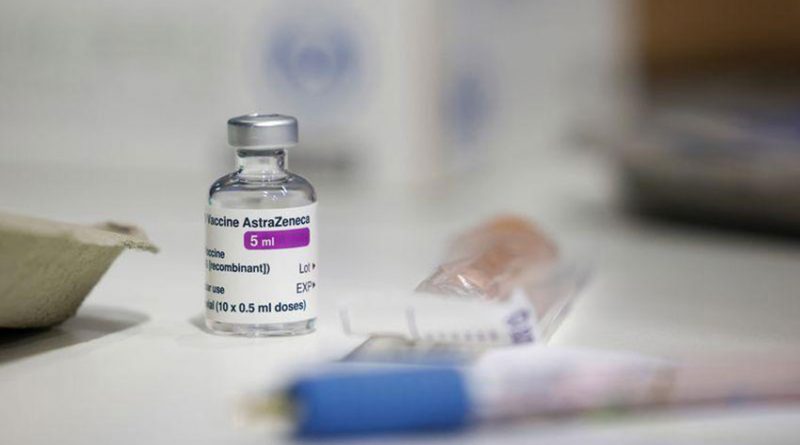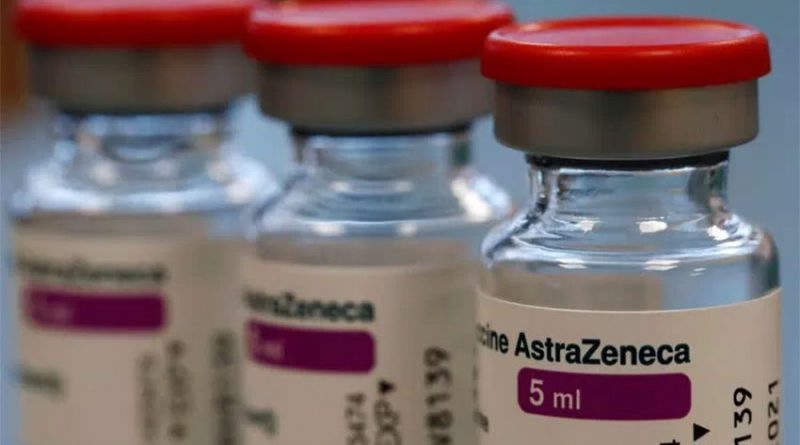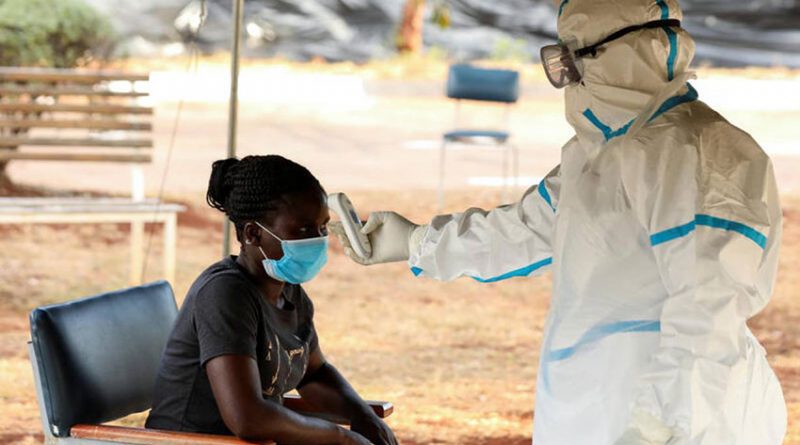SOUTH Africa has concluded the sale of AstraZeneca COVID-19 vaccines it had acquired but did not use to other African Union (AU) member states, the health ministry has announced.
The country had paused AstraZeneca vaccinations last month because of a small trial showing the shot offered minimal protection against mild to moderate illness caused by the dominant local coronavirus variant.
At the time, South Africa had received 1 million AstraZeneca doses from the Serum Institute of India and the delivery of another 500,000 was pending.
The ministry said it had in the past weeks worked to ensure that all member states identified by the AU vaccines acquisition teams as recipients of the vaccines were compliant and had obtained all regulatory approvals, permits and licences to roll out the vaccines in their respective countries.
“The minister can confirm that the full purchase amount was received by the department on Monday last week,” it said in a statement.
“The first batch of vaccines that is being delivered will benefit 9 member states and the balance will be collected this week to be delivered to 5 other member states.”
The statement made no mention of prices and did not name the countries that had purchased the vaccines.
After pausing the roll-out of the AstraZeneca vaccine, South Africa started inoculating healthcare workers with Johnson & Johnson shots in a research study.
The government plans to vaccinate 40 million people, or two-thirds of the population, to achieve some level of herd immunity.
Source - Thomson Reuters Foundation
PORTUGAL announced yesterday that passengers arriving from South Africa via a stopover in another country must also quarantine for 14 days and present a negative COVID-19 test taken 72 hours before arrival.
Direct flights from South Africa have already been halted and although few cases of the COVID-19 variant first detected in South Africa have been diagnosed in Portugal so far, the measure was intended to prevent any further spread, the ministry said.
Flights to and from Brazil and Britain have been suspended until the end of the month, also to prevent contagion of COVID-19 variants. Passengers arriving through a different country must also test and quarantine.
Portugal, which has so far reported 816,623 COVID-19 cases and 16,754 deaths, began easing a nationwide lockdown on March 11 but has kept travel restrictions, including controls on its border with Spain, in place.
Source - Thomson Reuters Foundation
THE African Union has urged African countries should continue to use AstraZeneca’s COVID-19 vaccine, echoing the World Health Organization (WHO) by saying the shot’s benefits outweigh risks.
The recommendation comes after more than a dozen European countries suspended the use of the AstraZeneca vaccine amid concerns over the risk of blood clots.
Africa has lagged in wealthier parts of the world in vaccinations, with many countries on the continent using free AstraZeneca shots distributed by a global scheme co-led by the WHO to kick-start immunisation campaigns.
John Nkengasong, director of the Africa Centers for Disease Control and Prevention, told a news conference the “benefits still outweigh the risks” and countries should “move forward”.
The head of the disease control body added that any adverse reactions should be monitored and reported.
“I encourage countries…to continue with their vaccination campaigns and not to pause, as we are in a race against time,” the WHO’s Africa director Matshidiso Moeti told a separate briefing. “The more people are protected, the less likelihood of mutations producing more dangerous variants of the virus.”
AstraZeneca said on Sunday that a review of safety data of more than 17 million people in the United Kingdom and European Union who had been given its vaccine had shown no evidence of an increased risk of blood clots.
The European Medicines Agency is investigating reports of 30 cases of unusual blood disorders out of 5 million people who received the AstraZeneca vaccine in the 27-nation EU. It said it has so far found no causal link.
In Africa, the Democratic Republic of Congo has delayed the rollout of AstraZeneca’s shot, citing the suspensions in Europe.
But other countries are forging ahead. Angolan Health Minister Silvia Lutucuta said on Thursday her country had not recorded any serious side-effects from AstraZeneca’s vaccine so far. She said doses shipped to Angola were from a different batch to ones distributed in Europe.
Muluken Yohannes, a senior adviser to Ethiopia’s health ministry, said the government there would continue using the AstraZeneca shot. “It is too early to associate the link between the current problem and the vaccine,” he told Reuters.
Source – Thomson Reuters Foundation
UGANDA yesterday launched a rapid COVID-19 antibody test partly funded by France that developers hope to market in sub-Saharan Africa, where the laboratory infrastructure needed for extensive novel coronavirus testing is thin.
The test, which requires a finger prick to draw blood, was developed by a team at Makerere, Uganda’s oldest public university, with partial funding from the French embassy.
The east African country has long experience of infectious diseases like HIV and Ebola which it has drawn on to develop diagnostics expertise.
“This is a point-of-care test that can be used within equatorial Africa village settings, remote areas where there’s no laboratory, there’s no electricity, there’s no expert,” said Misaki Wayengera, a researcher at Makerere’s Department of Pathology.
“We’ve had a history of developing rapid tests for infectious diseases…So when COVID came we were like, ‘OK, we have the skills, why don’t we do this’,” Wayengera, who also helped to invent a rapid test for Ebola.
The kits work by detecting two antibodies, immunoglobulin M (IgM) and immunoglobulin G (IgG), triggered when someone is infected with coronavirus, Wayengera told Reuters before the launch at Mulago, Uganda’s national referral hospital.
Makerere partnered with local firm Astel Diagnostics Uganda, a World Health Organisation-certified manufacturer, to make an initial batch of 2,400 tests. Wayengera said they are in talks with bigger investors about larger commercial production.
The kit, which has been approved by Uganda’s state-run National Drugs Authority, has an accuracy rate of 70%, he said, but researchers hope eventually to raise that to 90%.
Although rapid testing is seen as key to combating COVID-19, poor countries like Uganda have struggled to find a cheap and easily available point-of-care diagnostic tool for mass testing.
The COVID-19 outbreak in Uganda has been kept relatively mild, with only about 40,600 cases in total and 334 deaths.
Source – Thomson Reuters Foundation




